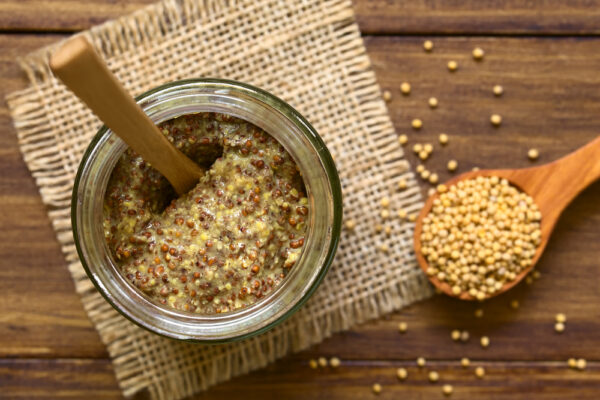3 Thrilling Nutrition Choices
You are what you “eat” is a saying that is quite popular and very true.
The food nutrition choices you decide to consume every day affect your health; how you feel today, tomorrow, and in the future.
Good nutrition is an important part of living a healthy lifestyle.
A good diet, when combined with physical activity, can help you maintain a healthy weight and reduce the risk of cancer and heart disease. It also promotes overall good health.
Nutrition can be defined as a well-balanced diet. However, like many things that go hand in hand, nutrition is more effective when it goes along with physical activity. In other words, the foundation of good health is physical activity and nutrition.
Eating healthy means consuming vitamins, healthy fats, carbohydrates, high-quality proteins, minerals, foods, and taking water as well.
Healthy eating also means minimizing consumption of alcohol, saturated fats, and processed foods. By following this simple guideline, you will be in a position to improve and maintain your body’s everyday functions.
However, why is it important to eat healthily? This is the million-dollar question. Well, eating healthy generally revolves around overall health, weight control, and disease prevention.
What are three exciting nutritional options?
The food choices that you make each day can go a long way toward keeping you healthy. Think variety, moderation, and balance. The best way to get the most out of your food choices is to make healthy choices most of the time. Some of the best choices include:
Lean protein
Is the building block of life. Without it, we cannot survive. Protein is found in every cell in the human body and is the major building block of muscle. The benefits of lean protein can be found in many different areas of our health.
Protein is important for growing children, and protein will help repair our muscles and tissues. This will help when losing weight or becoming more fit.
Protein is an essential macronutrient for children and adults alike. Protein helps in the development of strong muscles and tissues and aids in weight loss and fitness goals.
There are a variety of protein-rich sources to choose from for an exciting diet that will help you reach your health objectives.
Lean proteins provide essential amino acids and other vital nutrients such as B vitamins, iron, zinc, calcium, and magnesium.
Examples of excellent lean protein sources include fish, poultry, eggs, beans, legumes, nuts, seeds and soy products. All these sources are low in fat and offer a great alternative to red meat.
Whole grains
Are more nutritious and have higher fiber content than refined grains. Whole grains include whole wheat, brown rice, rye, bulgur, millet and buckwheat.
Whole grains are an excellent choice for those who want to add more nutrition and fiber to their diets. Whole grains contain all the essential vitamins, minerals, and protein found in the grain kernel.
The bran, germ, and endosperm. Refined grains have had some of these components removed, resulting in a less nutritious product. They provide essential nutrition and make for thrilling nutritional choices.
The bran layer is the outer coating of a grain seed, containing fiber, B vitamins, minerals, proteins, and oils. It helps to slow digestion and helps to stabilize blood sugar levels.
The germ is the innermost layer of the grain and contains essential fatty acids, B vitamins, minerals, proteins, and other nutrients. The endosperm is the largest portion of the grain kernel and is mostly carbohydrates.
Whole wheat is perhaps the most popular whole grain and is a great source of dietary fiber, B vitamins, minerals, and essential proteins.
Whole wheat is an incredibly versatile grain that can be used in a variety of dishes. The nutty, earthy flavor of whole wheat makes it the perfect addition to soups, salads, and baked goods.
It can also be ground into flour to make breads, pancakes, waffles, and other delicious treats.
Choose whole grains whenever possible. Every whole grain choice brings you closer to a healthy diet. Here are some tips to help you make smart food choices:
- Look for the whole grain symbol on food packages.
- Compare the nutrition facts panel for similar foods.
- Read the list of ingredients. If whole grains are listed first, that food is mostly whole grains.
- Eat a variety of whole grains.
Healthy fats
A healthy fats’ food choice is the best option. It’s important to consume the right amount of healthy fats in your diet. Here are some of the best healthy fats:
Dairy is an excellent source of healthy fat. Examples include cheese, milk and yogurt.
Eggs are a good source of healthy fat. One whole egg contains about 5 grams of fat. The egg yolk contains about 20% of this fat. The white does not contain any fat.
Nuts are a great source of healthy fat. They contain a high amount of monounsaturated fats. Examples include peanuts, almonds and walnuts.
Avocados are a good source of unsaturated fatty acids. Avocado oil has been shown to lower cholesterol levels in people who suffer from heart problems.
Vegetables are another great source of healthy fat and fiber. Examples include broccoli, cauliflower, spinach and kale.
The fat found in meat and dairy is classified as saturated fat. Consuming saturated fat can elevate LDL cholesterol levels, thereby increasing the risk of heart disease.
When you eat saturated fat, your liver turns it into saturated fat on your body, which can raise your cholesterol.
A variety of fruits and vegetables is good to diversify your metabolism intake.
Choosing vegetables and fruit for your healthy diet is an important part of living a healthy lifestyle. Listed below are a few vegetables and fruits to choose from.
Carrots
They are a root vegetable and are part of the parsley family. They are a good source of fiber, vitamin A and C, potassium, folic acid, niacin and beta-carotene. Carrots are one of the richest sources of beta-carotene.
Beta-carotene gives carrots their orange color and is an important antioxidant and anti-cancer agent. Carrots are also a great source of insulin, a hormone that helps regulate blood sugar levels.
Lots of fruits and veggies need to be eaten every day to stay healthy and fit. Not only do they give your body the vitamins and nutrients it needs, but they also fill you up with minimal calories.
For example, a cup of broccoli has only 33 calories, while a glass of apple juice has 130 calories.
So, depending on your goals, you can choose a variety of fruits and vegetables to eat and still stay within your calorie range.
Water
Choose food that is high in water content. This includes fruits, vegetables and soups.
Water is important for the body to function and to lose weight, because the water you drink is processed by the kidneys and sent back out through the body.
If you drink more water, then more toxins will be flushed from your body, and you will lose weight. But water can also make you gain weight, so water choices are important.
Legumes
They are considered to be a good source of plant-based protein and dietary fiber, and examples of legumes include beans, lentils, peas, and peanuts.
Legumes are low in fat and calories, but high in vitamins, minerals and antioxidants. They are a good source of B vitamins, iron, magnesium, potassium and zinc.
Legumes are helpful in controlling blood sugar levels due to their low glycemic index. Eating legumes can also reduce the risk of cardiovascular disease and obesity.
Legumes are a great choice for people who are trying to lose weight or maintain a healthy diet.
Overall Health
Healthy foods contain nutrients that support your day-to-day living, repair and protect cells from environmental damages. At the same time, protein helps to rebuild damaged or injured tissue as well as promoting a healthy immune system. The function of fat and carbohydrates is to fuel the body (they are the sources of body energy). The optimal functioning of every bodily process is sustained by a sufficient intake of vitamins and minerals.
For example, vitamins A, C, and E act as antioxidants, which means protecting cells from toxins. Vitamin B helps extract energy from foods you eat. Potassium and sodium help transmit nerve signals to and from the brain. Phosphorus and calcium promote strong bones. As such, without eating healthy, you may compromise either of these important functions.
Weight Control
Apart from quality, quantity does also matter for good eating habits. For example, if you consume the same number of calories you burn, it will help you retain your normal weight over time.
This means that if you consume more calories than you burn, it will result in weight gain because the body will convert extra calories into fat tissue.
If you have more fat, you have a higher risk of health problems like cancer, diabetes, breathing, blood pressure, and heart issues.
To avoid this problem, one must consider a healthy meal that does not have excess calories.
Fiber
Dietary fiber is an important component of a healthy diet and an essential part of any weight-management plan. It can help reduce cholesterol levels, regulate blood sugar levels, and promote digestion.
Fiber also helps to slow down the absorption of sugars, keeping you feeling full longer and curbing cravings. Eating high-fiber foods like whole grains, fresh fruit, vegetables and fruit juice.
Disease Prevention
Obesity is not the only nutrition-related disease, and this is a fact. It is important to note that too little or too much of a certain nutrient can lead to a health issue.
For example, lack of calcium in your diet will lead to the development of Osteoporosis (the weakening of the bones).
On the other hand, too much saturated fat will cause cardiovascular disease. Also, research has shown that too few vegetables and fruits are associated with an increase in cancer.
Eating a diverse range of foods is a good idea to get all the nutrients you need.
Fitness achievement is our main goal and with the above tips, you can achieve it easily.




